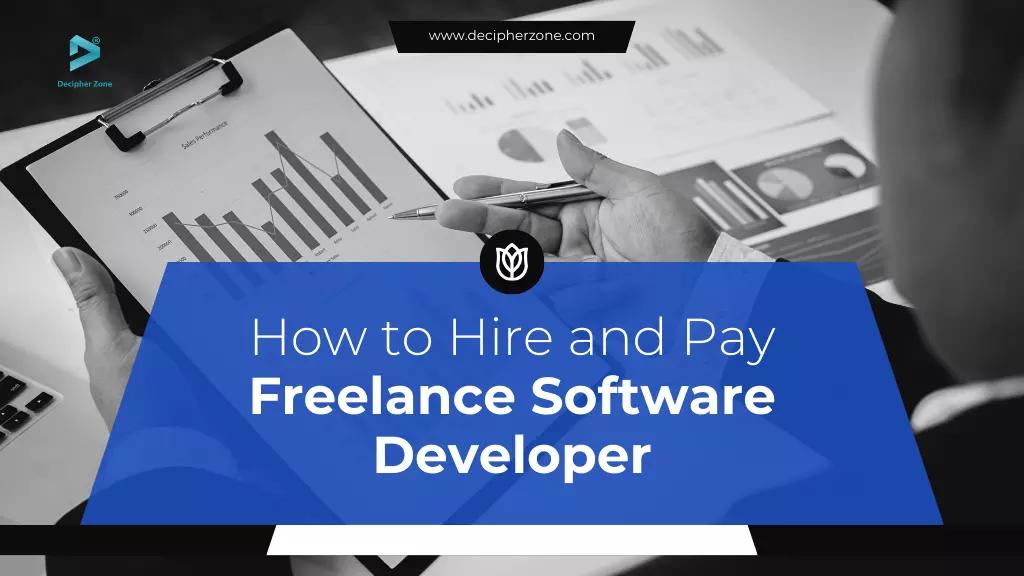The digital era has led to a paradigm shift in the workforce, particularly in software development. Companies, from startups to large corporations, are increasingly hiring freelance software developers.
This trend is fueled by the need for specialized skills, flexibility in scaling teams, and cost-effective solutions.
Freelancers offer access to a global talent pool, often with diverse experience and expertise that can be pivotal in tech projects.
Hiring and paying a freelance software developer
The success of your project hinges significantly on the expertise and compatibility of the developer you hire.
The right freelancer not only possesses the technical skills required but also aligns with your company's culture and project goals.
A mismatch can lead to project delays, increased costs, and subpar product quality.
Read: Ways To Hire Freelance Java Developers
Understanding Your Project Needs
Defining Project Scope
A clear definition of your project's scope is a cornerstone of successful project execution. It involves outlining specific objectives, deliverables, timeframes, and resources required.
This clarity helps in setting realistic expectations and provides a benchmark against which to measure project progress.
Read: Tips to Hire Remote Developers
Required Skills and Technologies
Determining the necessary technical skills and technologies is crucial. This could range from specific programming languages, and frameworks, to system architecture expertise.
Knowing these requirements aids in filtering candidates who are best suited for your project.
Finding the Right Freelancer
Hiring the right developer involves exploring various avenues. Online platforms like Upwork and Toptal specialize in connecting clients with freelancers and often provide tools for vetting and managing them.
Professional networks like LinkedIn can be valuable for referrals and recommendations. Personal networks and industry connections can also lead to trustworthy and skilled freelancers.
A freelancer’s portfolio and profile offer insights into their professional journey. Look for relevant project experience, technical proficiency, and client reviews.
This evaluation helps in understanding their approach to problem-solving, their expertise in specific areas, and their reliability based on past client feedback.
The Interview Process
Technical interviews are essential to assess the candidate's coding ability, understanding of software architecture, and proficiency in the technologies required for your project.
These interviews can include practical coding tests, problem-solving exercises, and discussions about past projects.
Soft skills like communication, adaptability, problem-solving, and work ethic play a crucial role in remote and freelance work environments.
Assessing these skills can be done through behavioral interview questions, scenarios, and references from past clients or employers.
Read: Benefits of Hiring a Software Development Company
Contracting and Agreement
A well-drafted contract lays the foundation for a successful working relationship.
It should cover the scope of work, deliverables, timelines, payment terms, confidentiality clauses, and ownership of intellectual property.
This clarity prevents misunderstandings and legal complications.
Intellectual Property and Confidentiality
It's imperative to protect your intellectual property and confidential information when working with freelancers.
The contract should specify the handling of sensitive information, ownership of the work produced, and non-disclosure agreements if necessary.
Understanding Contractor Payments
There are different ways to pay a contractor. The choice depends on factors like project nature, duration, and mutual agreement.
Hourly Rate
Paying an hourly rate is common and beneficial for projects with varying scopes. It offers flexibility but requires vigilant tracking of hours worked to ensure accurate billing.
Fixed-Price Contracts
Fixed-price contracts are suitable for projects with well-defined scopes. They provide cost certainty but require clear agreements on deliverables and revisions.
Retainer Model
A retainer model is a recurring payment for ongoing services. It ensures the freelancer's availability and is useful for long-term collaborations.
Project Milestones
Milestone-based payments align financial incentives with project progress. Payments are made as specific milestones are achieved, offering a balance of risk between the client and the freelancer.
Read: How To Hire Developers For Startups
Navigating Challenges
Common issues include communication barriers, time zone differences, and mismatched expectations. Solutions involve clear communication protocols, flexible meeting scheduling, and regular progress reviews.
Different regions have varying legal implications for freelance work. It's crucial to understand and comply with these, particularly in terms of contracts, tax obligations, and employment laws.
Hiring and paying a freelance software developer is a strategic decision that can significantly impact your project's success.
By thoroughly understanding your needs, meticulously selecting the right freelancer, drafting a clear contract, and managing the project

